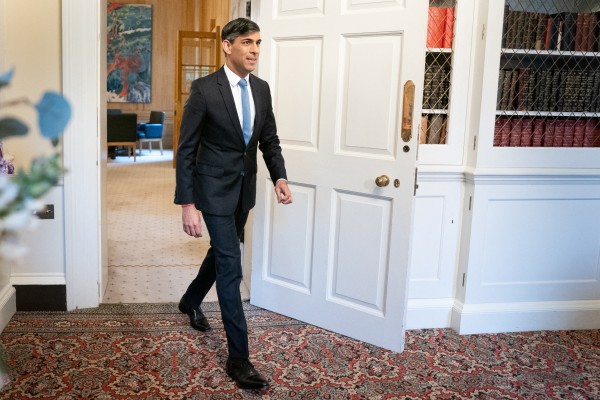.LONDON : Prime Minister Rishi Sunak called an election on Wednesday from a position of weakness.
Sunak, 44, heads into the election far behind the opposition Labour Party in opinion polls. And he is increasingly dependent on a small team of advisers to steer him through an ugly campaign.
RISHI SUNAK HAS CALLED A GENERAL ELECTION FOR 4 JULY.
It’s the end of the Tories (and I feel fine). pic.twitter.com/vKz4VhVaD8
— PoliticsJOE (@PoliticsJOE_UK) May 22, 2024
He is struggling to assert control over his governing Conservative Party. Some lawmakers are already discussing who will replace him after what many see as an inevitable election defeat.
Some party members say his tenure as prime minister marked missed opportunities. Others that he was the wrong man for the job, more technocrat than leader. One Conservative insider said he had become increasingly distant.
It all seemed so different when the former investment banker and finance minister took office less than two years ago.
As Britain’s fifth prime minister in eight years, critics initially credited Sunak with restoring some stability. His focus on fiscal prudence, a less antagonistic attitude to the European Union helped. So did his success in restoring a power-sharing government in Northern Ireland.
But he has struggled to define what he stands for. Many of his manifesto commitments were those of Boris Johnson, whose resignation in 2022 left the Conservative Party deeply divided.
Sunak has tried several times to turn around the party’s fortunes by recasting himself as a bold reformer.
Sunak replaced Liz Truss after her chaotic 49 days in power in the autumn of 2022. Some politicians described it as the most difficult economic and political inheritance of any PM since World War II.
His party was deeply split over which way it should turn to try to win over voters. Financial markets were spooked and debt levels had rocketed.
Britain’s youngest leader in modern times wanted to focus on delivery before the election, but some of his party colleagues say an obsession with detail often hampered quick decision-making.
As party strains worsened, Sunak became more frustrated and isolated.
“It’s a mess there (at Number 10),” said one aide on condition of anonymity earlier this year. “Sunak is in a bunker. The focus is meant to be on delivery but getting decisions is very difficult.”
Sunak was born in 1980 in the southern English port city of Southampton to Hindu parents of Punjabi Indian descent. He married the daughter of an Indian billionaire and is one of the wealthiest politicians in Westminster.
Some critics say his vast personal wealth and elite, expensive education means he cannot relate to the problems faced by many people in Britain.
Voters are struggling with a cost-of-living crisis, the country’s health service is facing some of the biggest challenges in its history and other infrastructure is in disarray.
Sunak is also under fire over several issues the right wing of his party feels he has done little to resolve – stopping migrant arrivals across the Channel, cutting taxes significantly and challenging what they see as a “woke” agenda in public life.
After weathering attempts to remove him, Sunak, whose approval ratings are even worse than those Truss had, enters the election with the hope that he can at least stem the haemorrhaging of support from the Conservatives.
“They used to say we (the Conservatives) have a narrow path to victory, but now it’s so narrow you can’t see it,” said one Conservative lawmaker on condition of anonymity.
(REUTERS)
















